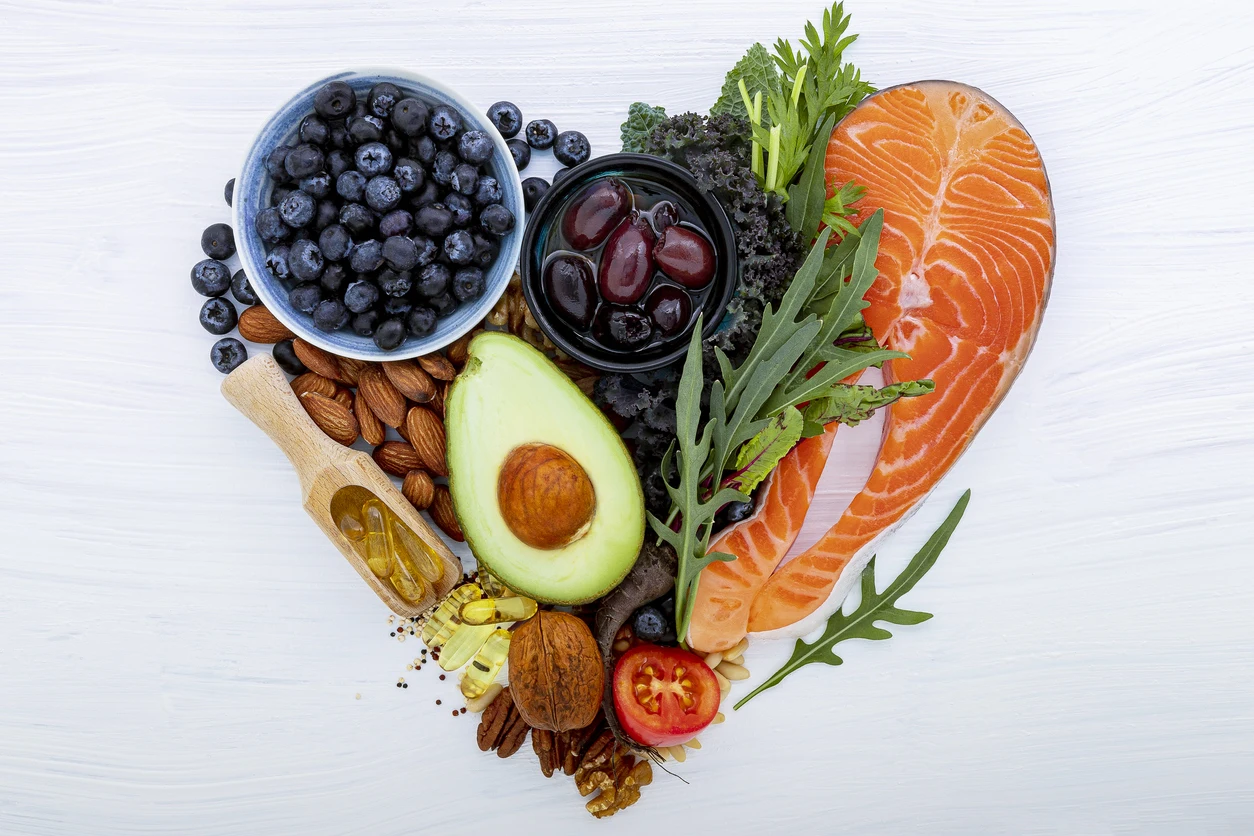
09 Feb Heart-Healthy Foods: Nourishing Your Heart at Every Age
Heart-Healthy Foods: Nourishing Your Heart at Every Age
In the heart of our vibrant community at Hickory Valley Retirement, we understand the importance of maintaining a heart-healthy lifestyle, especially as we age. A balanced diet, rich in nutritious foods, plays a pivotal role in heart health, offering a natural defense against heart disease and improving overall well-being. Let’s dive into the world of heart-healthy foods, exploring how these nutritional powerhouses can support a strong and healthy heart.
The Foundation of Heart Health: Understanding Nutrients
Omega-3 Fatty Acids: The Heart’s Best Friend
- Found In: Fatty fish like salmon, mackerel, and sardines are excellent sources of omega-3 fatty acids, known for reducing inflammation and decreasing the risk of heart disease.
- Plant-Based Sources: Flaxseeds, chia seeds, and walnuts also offer a plant-based omega-3 boost, ideal for those following vegetarian or vegan diets.
Fiber-Rich Foods: For a Healthy Heartbeat
- Benefits: Soluble fiber helps lower cholesterol levels by binding with cholesterol particles and removing them from the body.
- Where to Find Them: Oats, barley, beans, lentils, fruits, and vegetables are all great sources of soluble fiber.
Antioxidants: Combatting Heart Disease
- Role: Antioxidants protect your heart by neutralizing free radicals and reducing oxidative stress, which can lead to heart disease.
- Sources: Berries, dark chocolate (in moderation), nuts, and green leafy vegetables are packed with heart-protecting antioxidants.
Heart-Healthy Eating Habits
Colorful Fruits and Vegetables: A Rainbow on Your Plate
- Why It Matters: Each color represents different vitamins, minerals, and antioxidants. Strive to include a variety of colors in your diet to maximize heart health benefits.
- Tip: Aim for at least five servings of fruits and vegetables daily, choosing fresh, frozen, or canned options with no added sugars or salts.
Whole Grains: The Whole Heart Solution
- Whole Grains vs. Refined: Whole grains retain all parts of the grain, providing more fiber, protein, and nutrients compared to refined grains.
- Healthy Choices: Quinoa, brown rice, whole wheat, and oats are excellent choices that contribute to a heart-healthy diet.
Lean Proteins: Building a Stronger Heart
- Protein and Heart Health: Lean protein sources can help build muscle and reduce the risk of heart disease.
- Smart Picks: Opt for lean poultry, fish, beans, and legumes. If you consume red meat, choose lean cuts and limit intake.
The Sodium Debate: Salt and Heart Health
Watch Your Salt Intake
- Impact: Excessive salt consumption can lead to high blood pressure, a major risk factor for heart disease.
- Strategy: Flavor foods with herbs and spices instead of salt. Be mindful of the sodium content in processed foods by reading labels carefully.
Heart-Healthy Lifestyle Tips
Hydration: Drink to Your Heart’s Content
- Water and Heart Health: Adequate hydration is crucial for maintaining heart health. Water helps the heart pump blood more efficiently.
- Recommendation: Aim for 8 glasses of water a day, adjusting based on activity level and personal health.
Cooking at Home: A Recipe for Heart Health
- Benefits: Cooking at home allows for better control over ingredients, enabling healthier choices.
- Idea: Experiment with heart-healthy recipes that incorporate the foods and nutrients mentioned above.
Conclusion: A Heart-Healthy Journey at Hickory Valley Retirement
Embracing a diet rich in heart-healthy foods is not just about avoiding illness; it’s about enriching your quality of life, enjoying delicious meals, and sharing joyous moments with friends and family. At Hickory Valley Retirement, we’re committed to supporting our residents in their journey towards a heart-healthy lifestyle, offering nutritious dining options and educational resources to ensure every meal is a step towards a healthier heart.





